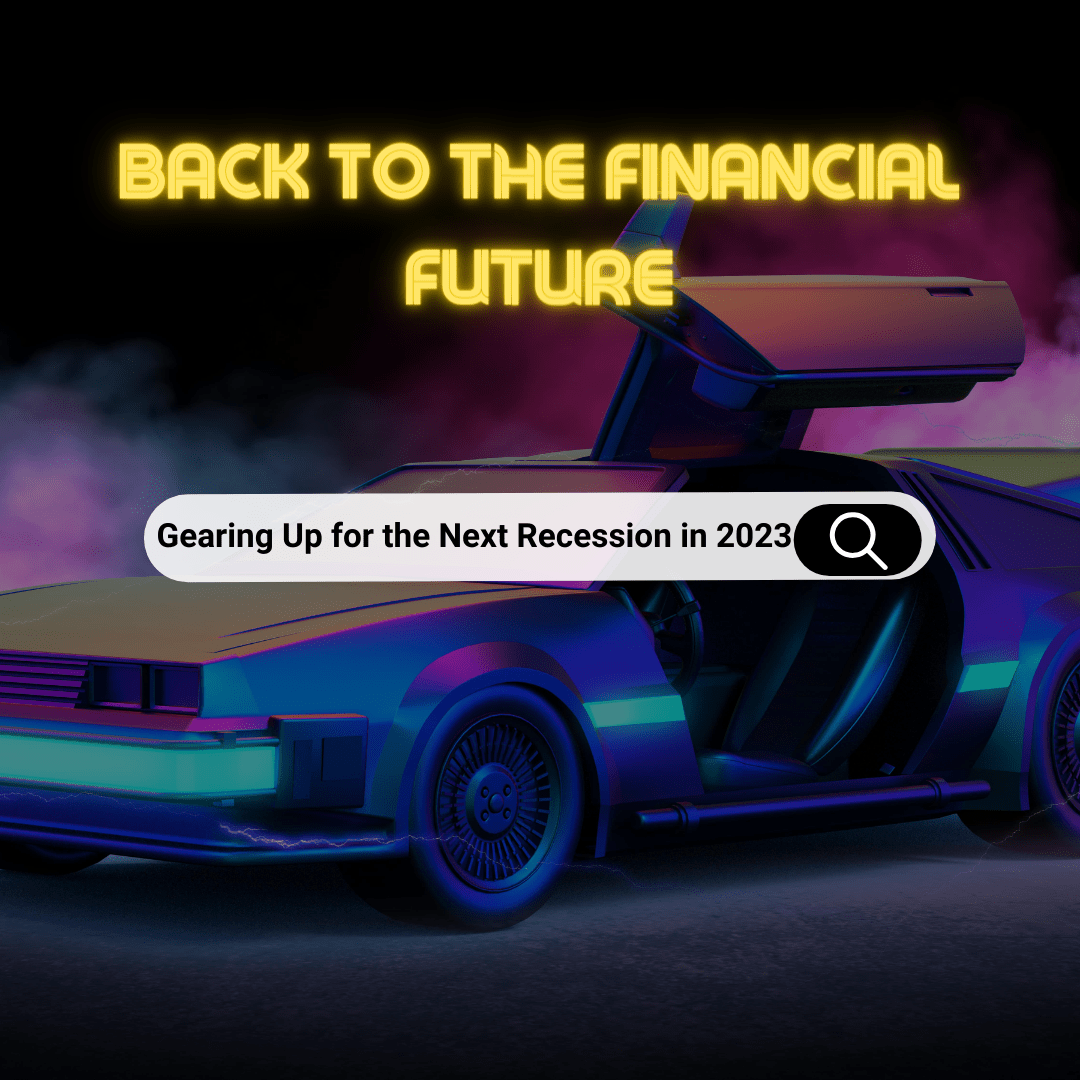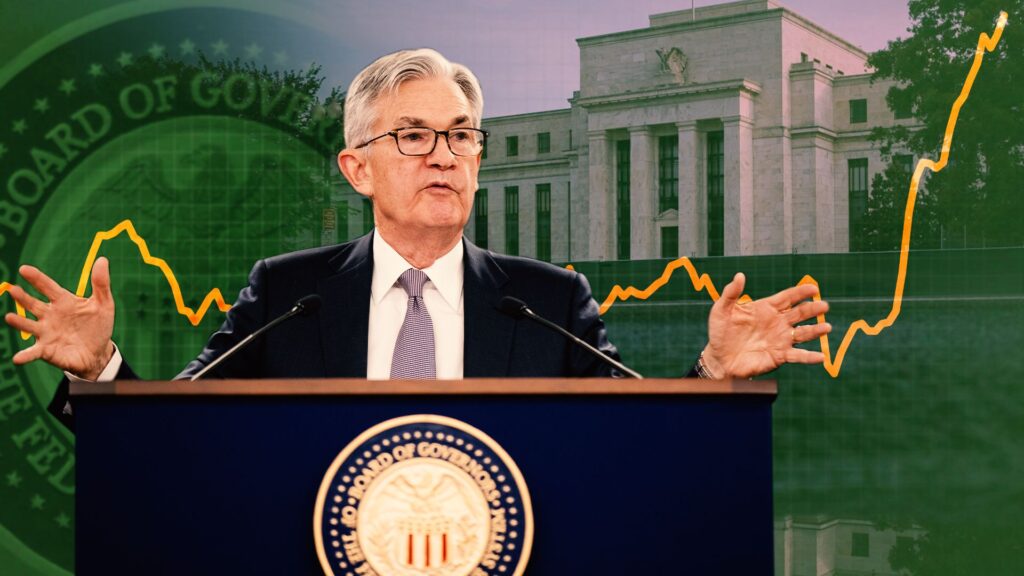Back to the Financial Time Machine: Bracing for the 2023 Recession
Tue Mar 28, 2023 by Oppenheim Law on Bank Fraud, Banksters & Great Recession

|
Getting your Trinity Audio player ready...
|
As the global economic landscape continues to devolve, it is crucial to draw upon the lessons learned from previous financial crises, much like Marty McFly’s thrilling time travel experiences in the classic film “Back to the Future.” With the Federal Reserve’s recent interest rate hikes and the ongoing banking dilemma triggered by a liquidity crisis leading to losses on long-term bond holdings, preparing for another recession has never been more essential.
The current economic turbulence presents a unique set of challenges, ignited by the Federal Reserve’s decision to raise interest rates. As a result, banks have seen a significant drop in the value of their long-term bond assets, causing widespread panic among depositors. The situation has reached a critical point with the near collapse of Switzerland’s banking system, as three regional US banks teetered on the edge of destabilizing the world’s financial infrastructure.

Federal Reserve Picture Courtesy THE WALL STREET JOURNAL
In the face of this possible recession, individuals are demonstrating resilience and adaptability by employing various strategies to cope with the economic downturn. Tactics such as accessing home equity lines to pay off credit card debt, refining resumes, and securing additional gig jobs have become increasingly common throughout the economy.
A pressing question on everyone’s mind is the potential impact of this crisis on real estate values. Although still uncertain, recent demographic shifts and the fact that nearly 45% of home purchases are now made in cash set this situation apart from the previous housing collapse.
In stark contrast to the previous housing disaster, homeowners today hold more equity in their properties. In addition, cultural shifts will likely cause numerous downtown office buildings to default on their loans, resulting in potential massive losses for pension plans. The transformation of the work environment, accelerated by COVID-19, has prompted people to work remotely rather than in offices, contributing to this change. As remote work continues, office buildings are left with fewer tenants, exacerbating rent issues and further complicating the situation. If one combines the downturn in commercial occupancy and the increase debt load which the landlord will carry, you have a perfect storm.
From Housing to Interest Rates: The Paradox of Two Financial Crises a Decade Apart
The paradox lies in the differences between the 2008 Great Recession and today’s crisis. In 2008, the housing market was the primary catalyst for the downturn, with widespread mortgage defaults leading to the collapse of major financial institutions. Conversely, the 2023 crisis is characterized by the Federal Reserve’s decision to increase interest rates, resulting in a decrease in the value of long-term bond assets and the near collapse of Switzerland’s banking system.

Picture Courtesy REUTERS/Arnd Wiegmann/File Photo
Furthermore, the Great Recession had profoundly shaped the behavior of the new generation of buyers. Millennials, who were children at the time of the Great Recession, display distinct patterns compared to their parents. They are less likely to purchase a home and struggle with a debilitating amount of student debt which, in turn, impedes their ability to enter the real estate market.
As a consequence of these emerging trends, a new type of investor had risen in the real estate arena. The investors compete and often prevail against first-time buyers in securing affordable properties and financing. As a result, young adults and first-time homebuyers find themselves “trapped” in the rental market, with a scarcity of reasonably priced homes available.
The unprecedented government bailout during the Great Recession fortified large banks, and smaller banks merged into more extensive entities. Therefore, if more banks were to fail, the repercussions of this recession could prove even more devastating than 2008. It’s essential to recognize that routine real estate closings are far from ordinary, and obtaining financing is becoming increasingly difficult once again. Banks are hoarding their cash in case more people need their deposits .
Financial crises are an inevitable part of history, and it’s not a question of if but when they will occur. The key to weathering the storm lies in preparation. By learning from the past, focusing on financial stability, and taking proactive steps to safeguard investments, navigating the rough waters of economic uncertainty becomes more feasible.

Picture Courtesy The New York Times
To prepare for the possibility of another recession, it is crucial to act now. Concentrating on saving money and reducing debt is one critical step. Cutting back on discretionary expenses, paying off high-interest debts, and building an emergency fund can help withstand a financial storm. Additionally, consider diversifying investments, seeking professional financial advice, and investing in assets that are not necessarily correlated with the stock market.
However, some stock market investors believe the market starts to restabilize as the Federal Reserve stops increasing rates or actually starts to lower them. This time the market started to turn downward when the Feds started increasing rates.
And as for home prices, we have seen decreases in various markets or at least much smaller increases than we had over the past few years. But will there be another foreclosure crisis? The answer to that will be determined by how many people actually lose their jobs and the unemployment rates as well as how many people no longer can afford their mortgages due to adjustable rates in some cases.
What Does All of This Mean?
While the full impact of this crisis on the real estate market and the economy as a whole remains uncertain, proactive preparation is indispensable. By learning from the lessons of the past, focusing on financial stability and readiness, and taking measures to protect investments, individuals can be better equipped to weather the storm when it arrives. And who knows? With the right approach, one might even find themselves navigating the turbulent waters of economic uncertainty like Marty McFly himself.
Roy Oppenheim
From The Trenches


Leave a Reply